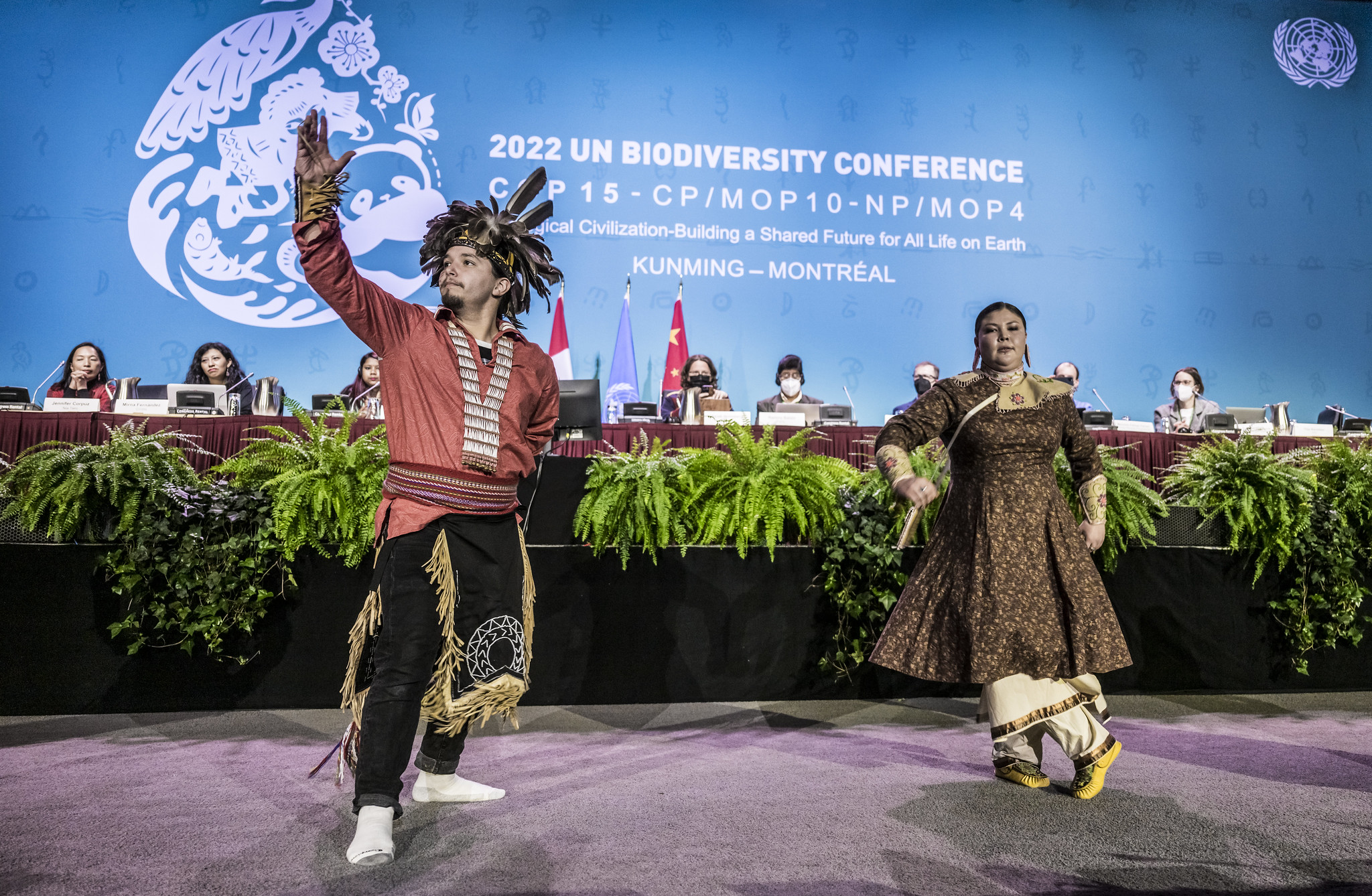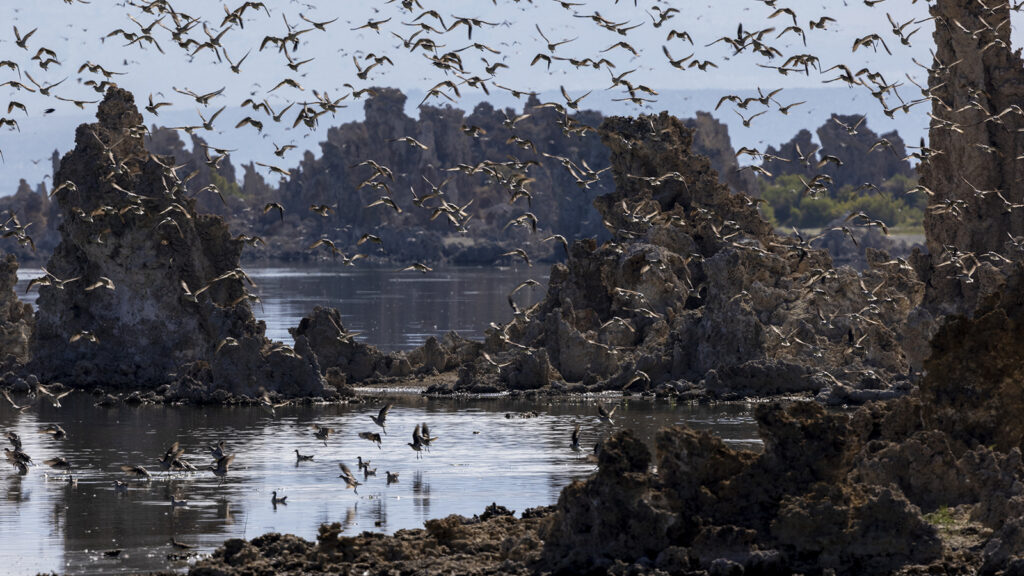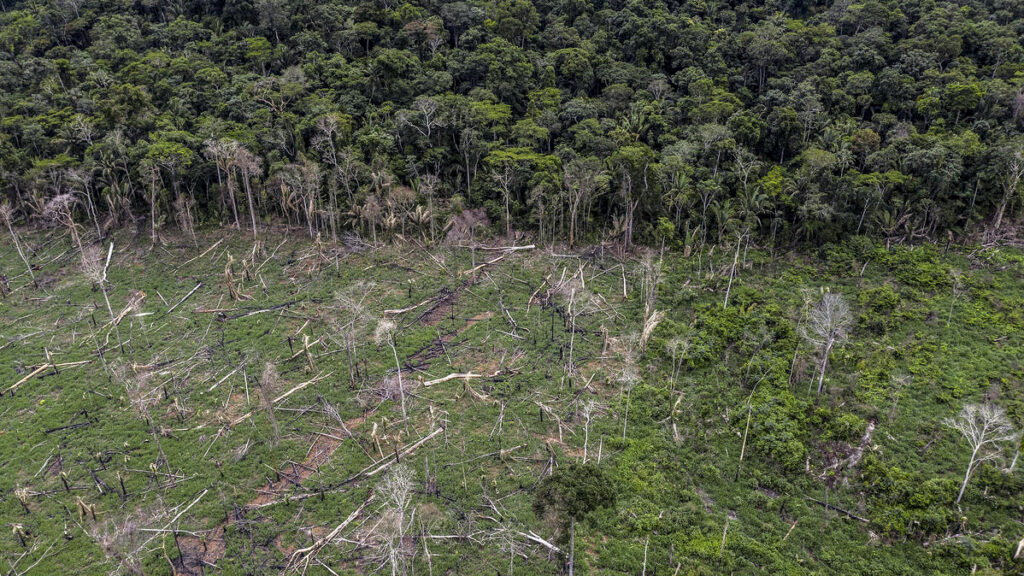
Indigenous Peoples from Canada celebrate at the The Nature and Culture Summit at the 2022 U.N. Convention on Biological Diversity (COP15) in Montreal, Canada.
Photo: UN Biodiversity/Flickr via CC 2.0
We need nearly two planet Earths to sustain our consumption of natural resources as human beings: Our use of ecological resources and services is about 75% higher than our planet’s capacity to regenerate them. This is not really a recent issue, but the scale of the challenge has reached unprecedented levels — and nature-related risks are material to businesses. In response, global commitments to tackle environmental degradation are increasing.
With the COP15 biodiversity conference currently underway, Swenja Surminski, managing director of climate and sustainability at Marsh McLennan Advantage, chats with experts across the fields of climate, finance and risk about why the global effort to halt biodiversity loss is so important for business.
On following the path of climate change:
Nature is very much an issue that has reached a critical point in terms of its significance, and its position, we are seeing, can be likened to that of climate change before the development of the Paris Agreement.
On nature-based solutions:
Nature-based solutions are a fundamental part of action for climate and biodiversity. There are many potential nature-based solutions. … [One idea] is carbon capture, but not mechanical carbon capture … [rather] using nature to allow carbon capture. … It is more about reforestation, or restoration of mangroves, or ecosystem services that nature is providing.
The mangrove one is an obvious one in the risk field. You use mangroves to protect coastal areas from flooding. And the same goes with coral reefs … they play a huge function in … delivering a service to society. And without them, we are much more exposed to losses from hurricanes, wind storms, and so on.
On the investor’s perspective:
The question we still face is why should regulators and, specifically, central banks care about biodiversity and nature loss? … The simple answer is, of course, that biodiversity and nature loss have macroeconomic and financial stability implications. … The key point really is that climate change and biodiversity loss are closely interconnected and potentially also interacting in a compounding way. This makes it very hard to justify only looking at climate change without taking biodiversity loss into account. … The big issue really is that not everyone is on the same page.









